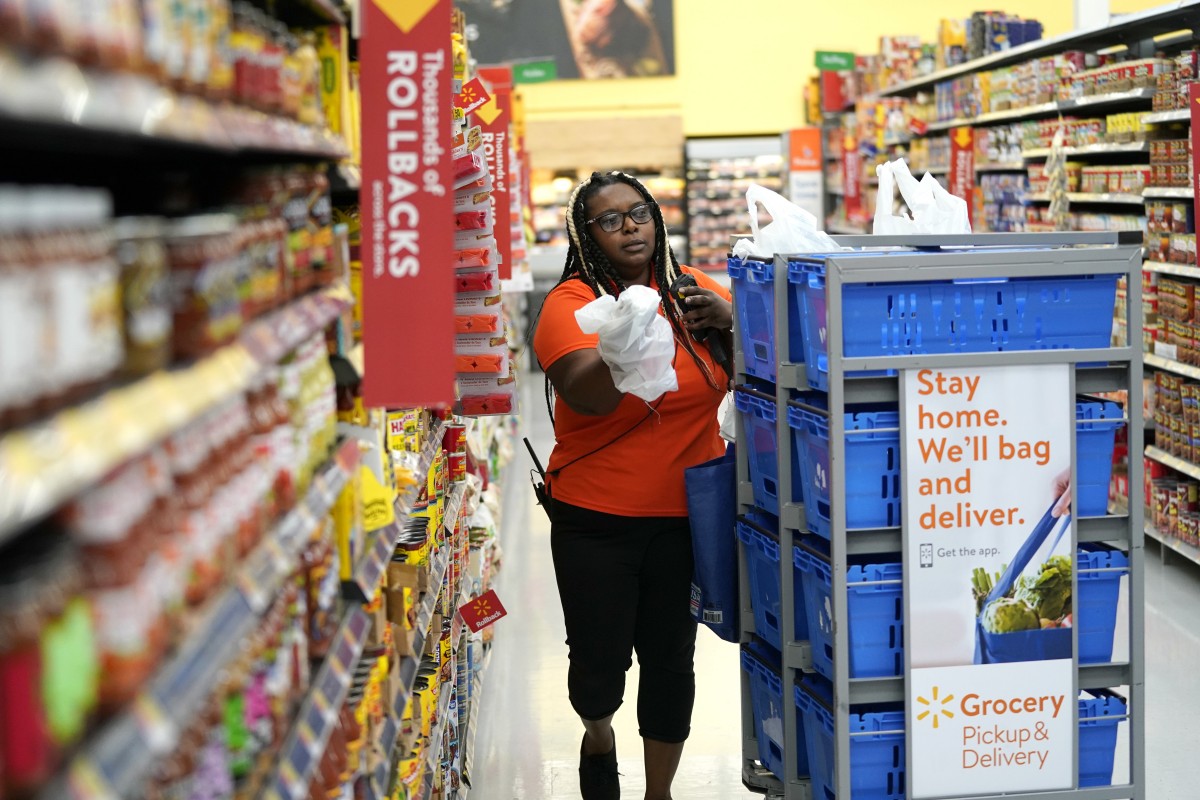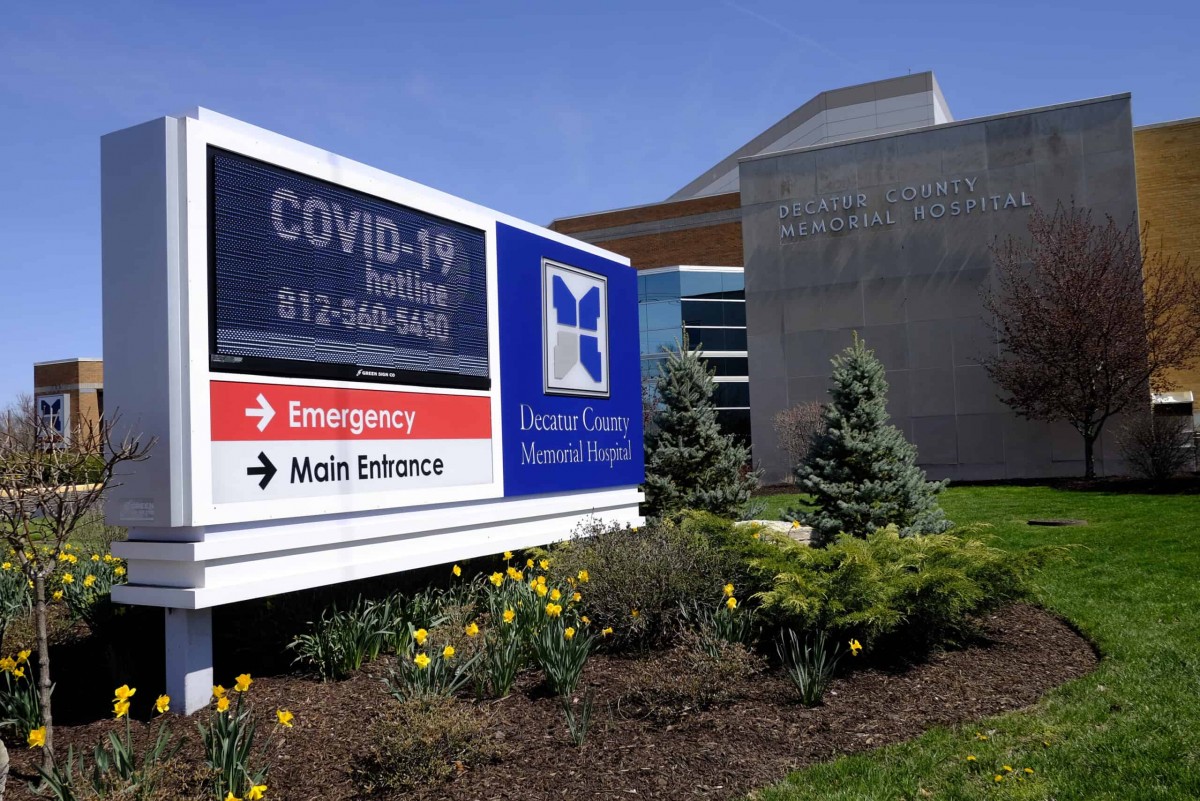The COVID-19 pandemic has changed life in Appalachia. More than 250,000 people in central Appalachia have applied for unemployment benefits, creating backlogs and significant delays. Rural health clinics that were already struggling to provide adequate health care to their communities are even more strained and more and more workers in essential industries are finding themselves ill.
So with all of the uncertainty, we wanted to hear directly from Appalachians about how their coping and how their communities are changing as a result of the pandemic. We sent out a digital survey asking you to share your personal struggles and community observations. Here’s what you had to say.
Some responses have been edited for clarity.
We asked: How have you personally been impacted by the coronavirus (COVID-19) outbreak?
The stress of adjusting to new work and lifestyle routines over the last month is something that multiple respondents pointed out in our survey. Many parents, in particular, responded to our survey with details about the difficulty of making sure children stay on a consistent schedule and don’t miss out on the learning they would have done in their regular school setting. However, for parents who have to work at home or are essential workers, that’s a tough task.
“I have had to work from home to care for my 11-year-old son who is unable to attend school,” Jolynn Powers, a contractor and redevelopment coordinator for Buckhannon, West Virginia, said in her survey response. “We are having to get up very early to get my husband to work because his job works all over the state and the state will not allow employees to stay in hotels, so he is driving two hours to work and two hours back everyday to stay employed.”
“My biggest challenge is trying to work at home and supervise homework for my son. I can’t teach and work at the same time, so we do a little of each then take a break and do it again.”
Some parents are feeling their children’s disappointment due to extracurricular activities being canceled. “My child has had his eighth grade D.C. trip, his Nashville band trip, his 4-H camp and his eighth grade graduation canceled,” wrote Tiffany Arnold, from Athens, Ohio. Arnold is a member of the Appalachian Studies faculty at a university. “However, I know that this is extremely minor and insignificant because I still have a job and we are going to be OK.”
Other parents are seeing the positive in being able to spend additional time at home with their children. “In many ways life has become a whole lot more relaxing as kids activities have all stopped,” wrote Ian McAra, advancement director at Notre Dame High School and St. Mary’s grade school in Clarksburg, West Virginia.
It isn’t just changes in family schedules that are forcing Appalachians to adapt right now. The coronavirus pandemic has left tens if not hundreds of thousands in the region without work, creating greater need in many communities, and those who work in nonprofits have had to quickly adjust to support them.
“I run a nonprofit that provides volunteer services for senior citizens in a two-county area,” wrote Jennifer Waggener, executive director of a nonprofit in Charleston, West Virginia. “The pandemic has wreaked havoc on the normal operation of our program, but opened doors to providing service to the community at large.”
Despite having to close down, one library in Gilmer County, West Virginia, has also been working to serve its community. “We opened our Wi-Fi to be available outside the building, have nine mini-libraries in the community we’re stocking with free books and we are pushing folks to access ebooks and audiobooks online — with their physical library card or they can get a free instant digital library card,” wrote library director Lisa Minney. “I miss our patrons. I have called some of them to check on them…and we’ve placed benches outside where folks can sit and use the Wi-Fi, but still be spaced apart.”
“I am not sleeping well,” Minney said. “I worry about our patrons, our employees, our library, our future funding. I drive to the library once a week to feed the birds…I can’t wait to get back to work.”
Those in recovery are being challenged by COVID-19; social distancing and isolating to stay safe from the virus but also putting themselves in danger of relapse. “As someone with long-term sobriety, not being able to be part of my recovery community as I usually would has been difficult to adjust to – isolation for people in recovery is something we learn to be watchful for and guarded against, as isolation is a significant part of the disease of addiction. COVID is challenging us all,” wrote Charleston, West Virginia, social worker Brooke Parker.
“The long-term impact of this on people [with substance abuse disorders] is feared to be another crisis layered on top of COVID and the existing overdose crisis, and although we know we are not alone, it feels as though there’s no solution right now,” Parker said. “Overdose deaths will increase, and as the drug supply dries up due to lack of movement, we are seeing single-substance users move to poly-substance users, and people are using drugs they aren’t used to. We fear that with the rise of methamphetamine use, and synthetic drugs making their way into the population, we won’t have any help for overdoses – Narcan doesn’t work on anything but opioids.”
Many Appalachians are dealing with feelings of fear, especially when it comes to unemployment and the inability to access assistance programs. “Relying on good will from my family, but no one has money to spare,” a respondent from North Carolina shared after being laid off. “None of our gardens are viable this early in the season. No food assistance either. I’m scared. Most of my family is scared.”
We asked: How has your community been impacted by coronavirus (COVID-19)?
While social distancing is essential to stopping the spread of COVID-19, some are struggling with the disconnection they feel to their community, leaving them to turn to social media.
“Social distancing causes folk to disconnect,” educator Jeff Hawkins of Neon, Kentucky wrote. “Reduced opportunities to share and know who needs help. Church services, little league, civic organizations and traditional gathering places (restaurants, walking track, etc.) mean that folk are communicating and connecting over social media (for those who have access) which is good but has drawbacks for nuance and clear messaging.”
Others are noticing the overarching issues Appalachians have always faced that are especially challenging in this time. “Our community has great disparity in terms of income due to it being in the poorest part of the state but still having a major university,” said Arnold, from Athens, Ohio.
“The schools have struggled because the university-affiliated people want their kids in online school as soon as possible, but there are so many people in this county who do not have technology or access to high speed internet.”
“As of right now, we only have three confirmed cases in our county and it has been that way for three weeks,” Arnold said. “Everyone knows that this is due to a lack of access to healthcare and not some magic immunity we have to it. No one is being tested.”
Food insecurity is becoming a greater issue for communities as they experience scarcity of certain products in grocery stores and food pantries. “At the soup kitchen, we were serving about 200 people a day, and our numbers have nearly tripled since COVID started,” said social worker Brooke Parker, from Charleston, West Virginia. “Seeing the number of people thrust into such intense food insecurity so quickly has been shocking, as well as the number of people living in the margins and needing access to food pantries to meet basic needs.”
Parker also recently started working as an assault crisis volunteer responder in Charleston, West Virginia. Since stay-at-home orders were issued in the state last month, Parker and her colleagues have witnessed the effects of increased tension in families and the difficulty for those who are living in domestic violence situations with nowhere to go.
“As we are not allowed in the [emergency department] at local hospitals (to limit the number of people in the ED’s dude to COVID), I have been watching the frequency of domestic violence incidences and assaults happening, and we all feel powerless,” she said. “This is exposing families and children to unprecedented levels of violence, with no escape.”
Many respondents are proud of the response and resiliency of their communities and the actions their local leaders took to limit the spread of COVID-19.
“We have had some campaigns locally, including an online ‘tip jar’ for service workers who have lost a large portion of their income,” said Amy Arnett, who works in communications and development for a nonprofit in Charleston, West Virginia. “Our state has seen a dramatic increase in unemployment claims, so it’s hard to say now exactly how those lost jobs and dollars will impact the community, but increased evictions, more stress on state benefits programs and more will likely be in the mix.”
One anonymous respondent has noticed the amount of kindness their North Carolina community has shown to support each other. “People are being kind. Kinder than usual,” they said. “Everyone is struggling to remain optimistic, but it’s not like this is the first time we’ve been forgotten.”
Regardless, Appalachians are staying true to what they know– sticking together and taking care of others.
“…Seeing the community and state-wide response that seemed to spring up overnight has been incredible,” Parker, from Charleston, said. “It’s become clear, once again, that we realize no one is coming for us so we harness the resilience and grit that we have had for generations, and make our own way. If there is any hope, it is in this, and we are all hanging on to this.”
Want to share your thoughts with us? Complete our survey here.



